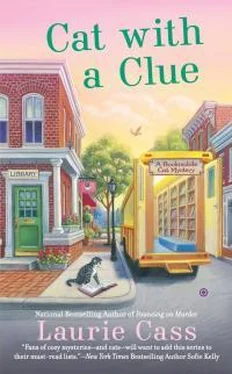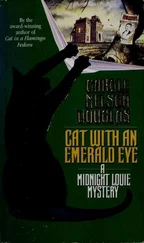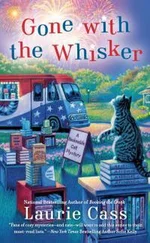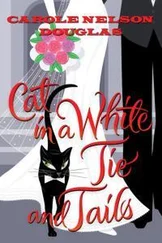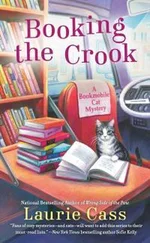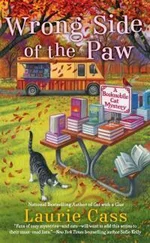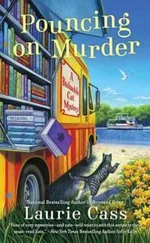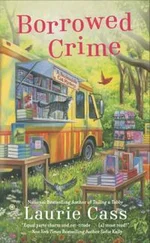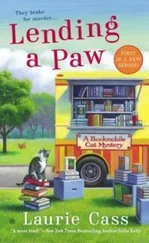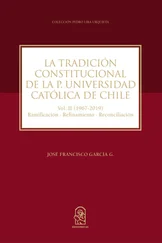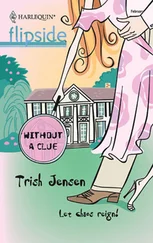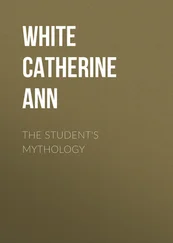There were also, I remembered, many entries about my aunt. My aunt, who, in previous boardinghouse summers, was a participant in the games. Who, in the past, had often sat on the front porch swing with a guest or two. Who, for as many summers as I could remember, spent many an evening crouched in front of the living room’s fieldstone fireplace, convincing her boarders that s’mores were best with a mini Reese’s Peanut Butter Cup.
“She’s not the same as in the scrapbooks,” Eva said.
I shook my head, not so much disagreeing as not wanting to talk about this.
“In the books,” Forrest persisted, a frown of concern on his face, “she was more active. Participating with guest activities almost every day.”
“But she’s not doing that,” Liz said. “Not this year. So we’re wondering . . .” She bit her lower lip.
“We hope she’s not ill,” Welles said, sighing, and I had the sudden and frightening thought that, as a dentist, he must have seen dozens or hundreds of patients who’d been seriously sick. Was it possible that Welles had detected something about my aunt’s health that I didn’t know? Had she been diagnosed with something so life threatening that she didn’t want to share it with anyone?
My throat constricted so tight that I had to cough it loose. And, in doing so, I rattled my brain enough that some thoughts fell out.
“If she was sick,” I said, “she would have told me.” She also would have made me promise not to tell my parents, which included her brother, until she was good and ready. “We made a pact about that very thing when I moved to Chilson.”
This was true. It had started as kind of a joke. Aunt Frances had been reading a novel about a man diagnosed with a fast-moving internal cancer, but he hadn’t told anyone, even his wife, until the day he collapsed while walking up their basement stairs, carrying a wooden stool he’d just finished mending. He’d died two days later, and the bulk of the novel was about the wife trying to forgive him.
My aunt had looked at me over the top of the book and said, “I promise I’ll tell you if you promise you’ll tell me.”
“Deal,” I’d said, and we’d bumped knuckles to seal the pact.
It had been a lighthearted moment, but since then, we’d both made references to the promise. It was reassuring, in a way I wasn’t sure I wanted to think about much, so I usually didn’t.
Now I looked at the concerned faces. My heartstrings were well and truly tugged. These folks cared about my aunt. They wanted to know that she was all right, and they certainly looked ready to step in and roll up their sleeves if she needed any help.
But I knew what my aunt needed, and there wasn’t any help they could provide.
* * *
Instead of taking a direct walk back to the marina, where I was going to meet Ash in a couple of hours, I wandered through downtown. It was still early; the only places open were Cookie Tom’s and restaurants that served breakfast. This meant the sidewalks were empty enough of tourists that I could walk without paying too much attention to where I was going.
So it shouldn’t have been a surprise that, when I was staring up at the few clouds in the sky, wondering if the wind was going to stay low or if it was going to whip up into something that would put a damper on the afternoon’s activities, I didn’t hear Denise Slade calling until she planted herself smack in front of me.
“If you paid more attention to where you’re going,” she said, “you might get a lot further in life.”
“And where would I want to go?” I asked cheerfully. “I’m pretty happy right here.” I flung out my arms, narrowly missing a light pole.
Denise rolled her eyes. “It was a metaphor.”
I wasn’t sure it had been, but whatever. I’d learned not to take Denise’s comments personally; she was caustic by nature, and there was no reason to think she treated me any differently from anyone else. Denise, if she’d been face-to-face with Bill Gates, would demand to know why Microsoft products locked up so often. If the most famous author in the world moved to Chilson and wanted to volunteer with the Friends, Denise would have asked for qualifications. If the most—
Something jogged in my head and I mentally snapped my fingers.
“Say, Denise. I could do with a favor.”
She sniffed. “Maybe. Maybe not. What is it?”
Of all the Friends of the Library presidents in all the world, Denise had to be president of Chilson’s. “Do you keep track of who volunteers in the book-sale room?”
Denise tossed her hair. “Of course I do. What kind of operation do you think I run?”
With great restraint, I didn’t say what I really thought. “Could you please e-mail me a list of everyone who was working that week the books were thrown off the shelves?”
Denise’s eyes came together into narrow slits. “You can’t think that one of my volunteers did that. That’s just stupid.”
“I don’t think anything of the sort. But I would like to talk to each of them, ask if they noticed anything different.”
“Hmph. It’s about time you did something about that.” Denise gave me a quick look up and down. “It’s because you’re getting a new library director, I bet. You’re afraid the new guy is going to fire you for letting a murder and two break-ins happen on your watch.”
How she’d come to that bizarre conclusion, I had no idea. But since I also didn’t care to learn how Denise’s thought process worked, I just said, “If you could send me the list, I’d appreciate it.”
“Well.” Denise sighed. “I suppose. But that stuff is at home, and I’m doing the flowers at church this morning, then I have a volunteer shift at Lake View this afternoon, and tonight my friend Bobbi is hosting a euchre tournament, and she always says she can’t play cards without me, so I can’t promise when.”
“Whenever you have a minute is fine,” I said, edging away. “Thanks.” And I fled before she could start talking about her Monday schedule. During my hurried walk, I went past Benton’s, stopped, turned around, and stepped up to the front door. The store wouldn’t be open for almost another hour, but maybe Rianne was in. I knocked loudly and, sure enough, Rianne’s head poked out of the back doorway.
She saw my frantic gestures and came forward to unlock the door. “Minnie, what’s up?”
“Do you have a few minutes?”
“Sure,” she said, glancing outside at the big clock. “Would you like some coffee? I was just going over some inventory numbers. Come on back.”
As we settled ourselves in her office, coffee in hand, I trailed my fingers across a few spokes of the ship’s wheel. “Do you remember a book about wildflowers at your grandparents’ house? It was on the sideboard.”
“Flowers?” She blew steam off her coffee. “I guess so, but I was more of a Boxcar Children fan. Why do you ask?”
“Because I think that book is why Andrea was killed.”
Rianne stopped midsip. “I don’t understand.”
“This is going to sound impossible, but the book Wildflowers , by Robert Chastain, is potentially worth a lot of money.”
“How much is a lot?” Rianne went back to sipping.
“If it’s in mint condition, half a million dollars.”
Rianne’s mouthful of coffee blew out in a spray all over her desk. “Half a million ? That can’t be right. No way did Deke and Granny have anything worth that much. No way.”
I told her that Cade himself had seen the book. “Plus, I think that’s why Andrea was in the library that night. Somehow she knew the value of the book and was trying to find it. And I think someone is still trying to.”
“Why didn’t they put it in a safety-deposit box?” She looked around a little wildly. “Get it insured? Something. Anything.”
Читать дальше
